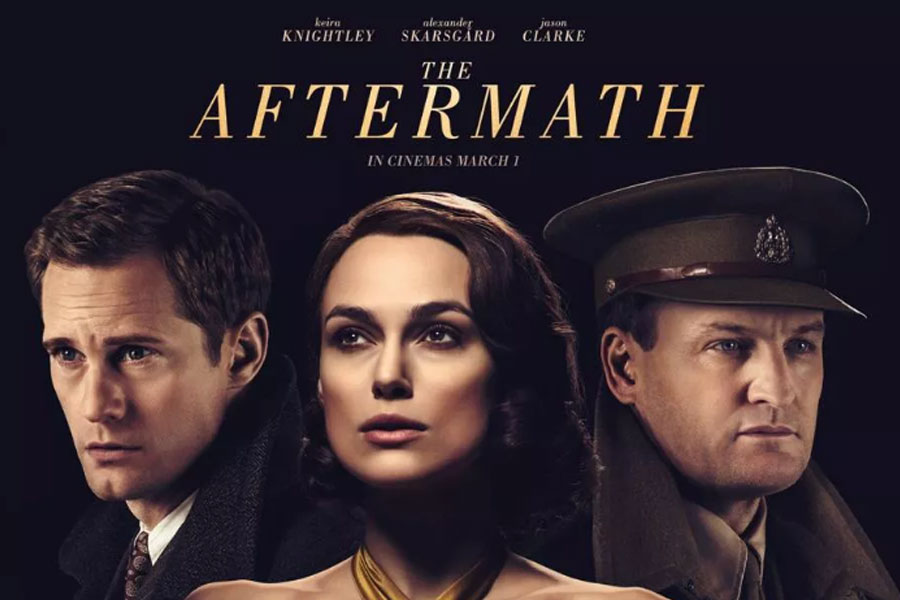
Featured | Jul 13,2020
The problem with attempting to be dramatic is that it is easy to be full of oneself, which is what M. Night Shyamalan has been for far too long.
The filmmaker that gave us The Sixth Sense and Unbreakable thought he could get away with The Village and Lady in the Water. Fortunately, it seemed like he began to see the pompousness of his own work after a time. Unfortunately, he thought he could remedy it by making light, commercial and mindless movies such as The Last Airbender and After Earth.
It is said that Shyamalan returned to form with 2016’s Split. Indeed, it was his best movie in 16 years, after Unbreakable, the prequel to the movie. But it was generous acclaim considering the masterful filmmaker he was predicted to become in the early 2000s.
Glass is the last film in the trilogy of the Unbreakable film series. The first movie was about David Dunn (Bruce Willis), a.k.a the Overseer, a security officer who comes to recognise that he has superpowers, including durability, hence the title. Split introduced us to Kevin Crumb (James McAvoy), a.k.a the Horde, a man with 24 personalities, thus the split, including one that resembles a beast in body and character.
Glass brings all of these characters, including the villain from Unbreakable, Elijah Price (Samuel L. Jackson), an evil genius that suffers from brittle bone disease. Also referred to as Mr. Glass, he is the titular character of the movie.
The three characters cross paths when they are admitted into a psychiatric hospital after being caught by the police on differing occasions. There they meet Sarah Paulson, a doctor that tries to convince them that they do not actually have superpowers but only suffer from delusions of grandeur. They are not super, they just think they are, she tries to convince them. She almost persuades them, except Mr Glass, who, even heavily sedated, is smart enough to see the holes in her theory.
Almost every scene of Glass is exciting. It is cerebral, introduces us to characters that are unforgettable and presents an engaging plot. I would have been more impressed had the psychiatric hospital not been laxly guarded, making escape too convenient. But the fixation of the movie on the characters’ psychological development makes it beyond the point.
Crumb remains the most memorable of the characters, owing to the performance of McAvoy. As in Split, Shyamalan allows the actor a great deal of screen time to try out every extreme of his acting ranges, which he does with enthusiasm and success. He barely misses a beat when shifting gear between acting as a nine-year-old to a professor of Japanese cinema.
Unfortunately, Glass’ excitement only persists until the finale of the film, where Shyamalan is traditionally expected to deliver a plot twist.
Why can the plot twist not be the lack of a plot twist this time?
Expectations are high, and Shyamalan pops out one of his infatuations - beside the supernatural and a cameo of himself both of which are also part of Glass. It is not easy to have been anticipated by the audience and serves as a vindication for one of the protagonists. But it felt too much like a self-serving plot twist, concocted by Shyamalan not to disappoint fans of his style.
Still, the Unbreakable film series deserves a special place in the superhero genre. It is a drama, interested in the psychological implications of the effects of being superhuman. It is slow paced, noiseless and more character-driven than most superhero movies - characteristics Marvel and DC would rather close up shop than entertain.
PUBLISHED ON
Jan 26,2019 [ VOL
19 , NO
978]

Featured | Jul 13,2020

Films Review | May 11,2019

My Opinion | Feb 15,2020

Commentaries | Jun 21,2025

Radar | Jul 20,2025

Commentaries | Aug 27,2022

View From Arada | Oct 07,2023

In-Picture | Feb 24,2024

Fortune News | Oct 05,2025

Fortune News | Sep 10,2021

Photo Gallery | 180603 Views | May 06,2019

Photo Gallery | 170797 Views | Apr 26,2019

Photo Gallery | 161880 Views | Oct 06,2021

My Opinion | 137300 Views | Aug 14,2021

Nov 1 , 2025
The National Bank of Ethiopia (NBE) issued a statement two weeks ago that appeared to...

Oct 25 , 2025
The regulatory machinery is on overdrive. In only two years, no fewer than 35 new pro...

Oct 18 , 2025
The political establishment, notably the ruling party and its top brass, has become p...

Oct 11 , 2025
Ladislas Farago, a roving Associated Press (AP) correspondent, arrived in Ethiopia in...

Nov 2 , 2025
The National Bank of Ethiopia (NBE) has scrapped the credit-growth ceiling that had s...

Nov 2 , 2025 . By SURAFEL MULUGETA
The burgeoning data mining industry is struggling with mounting concerns following th...

Nov 2 , 2025 . By YITBAREK GETACHEW
Berhan Bank has chosen a different route in its pursuit of a new headquarters, opting for a transitional building instea...

Nov 2 , 2025 . By BEZAWIT HULUAGER
Nib International Bank S.C. has found itself at the epicentre of a severe governance...